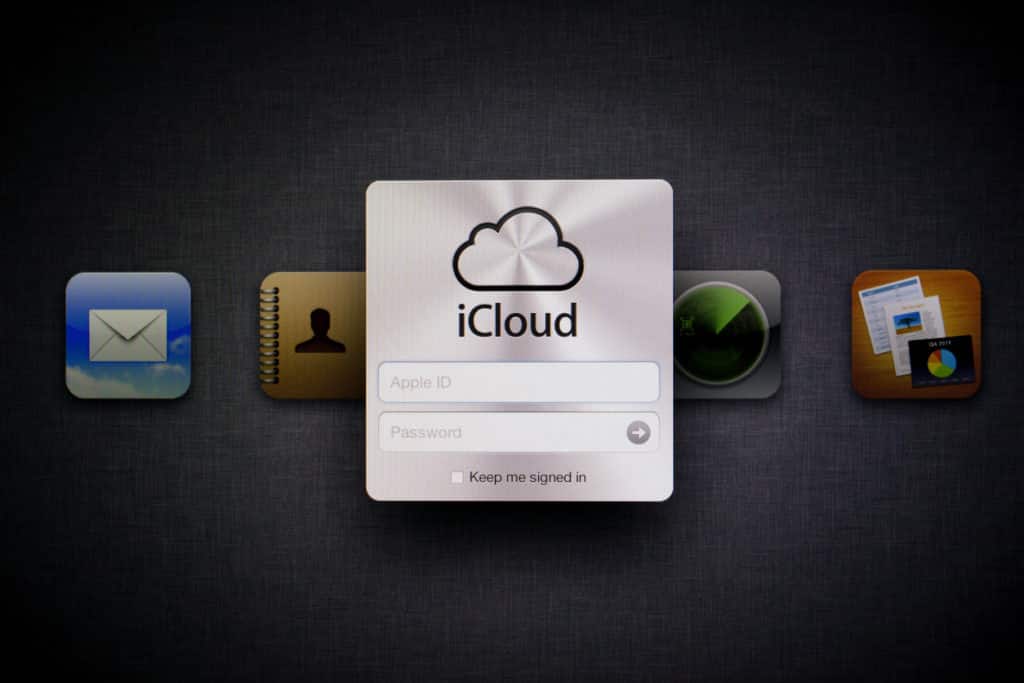Cloud computing is the transmission of computer services over the Internet ("the cloud") in order to provide speedier innovation, more flexible resources, and economies of scale. You usually only pay for the cloud services you use, which helps you cut expenses, manage your infrastructure more effectively, and scale as your business grows.
Post Graduate Program in Cloud Computing by UT Austin
Master AWS, Azure & GCP in 6 months with 200+ projects & GenAI tools. Get career-ready with UT Austin’s Cloud Computing Certificate
Organizations of all sizes and industries are utilizing the cloud for a wide range of use cases, including data backup, disaster recovery, email, virtual desktops, software development, and testing, big data analytics, and customer-facing web apps. Healthcare organizations, for example, are utilizing the cloud to produce more tailored therapies for patients. We can look at the list of top companies that have succeeded with cloud computing to understand their journey with cloud computing and learn from it. The cloud is being used by financial services organizations to support real-time fraud detection and prevention. The cloud is also being used by video game developers to provide online games to millions of players all over the world.
Even if your company lacks technical personnel to manage Cloud computing, managed-to-host services such as Kinsta utilize the power of Google Cloud computing to provide excellent services tailored to your company's size. This not only offers non-tech businesses more flexibility but also helps them expand digitally. Understanding cloud foundation will help you power ahead your cloud computing career by understanding the fundamentals in this cutting-edge field.
Check out this free course on " Cloud Computing For Organizations" to go in-depth about how efficiently organizations are using the cloud.
10 examples of top companies that have succeeded in using cloud computing
- General Electric
- Apple
- eBay
- Netflix
- Kroger
- Fitbit
- Capital One
- HotelTonight
- Meals On Wheels? Greenville, Co., SC Branch
1. General Electric
General Electric (GE) began its digital transformation in 2014, but it chose Amazon Web Services (AWS) as its preferred provider three years later, relying on the service to host more than 2,000 cloud-based apps and services.
"Adopting a cloud-first strategy with AWS is helping our IT teams get out of the business of building and running data centers and refocus our resources on innovation as we undergo one of the largest and most important transformations in GE's history," said Chris Drumgoole, Chief Technology Officer and Corporate Vice President of General Electric.
GE experimented with the notion of developing its own industrial cloud a few years before switching to AWS but decided against it. It chose to concentrate on other areas of its company while entrusting cloud infrastructure to AWS.
2. Apple
When Apple developed Siri, a computer that imitates a human being and assists users by asking inquiries, it revolutionized the entire mobile phone technology. Although Siri's voice is remarkable, the way she operates is much more so. The cloud receives and processes user inquiries before it responds to them.
Users may also utilize the cloud to exchange data, apps, and upgrades without having to make any physical modifications to their hardware or software. In fact, the majority of people are familiar with Apple's cloud program, iCloud.

3. eBay
People who use eBay want it to operate well and to display the listings for practically anything they can think of. People may miss out on opportunities to put winning bids for the goods they desire most if the site fails at a critical time. As a result, when eBay decided to relocate its marketplace of over a billion listings, it recognized the endeavor as a major project.
It did, however, complete the transfer to Google's cloud platform in five months with the aid of a team of engineers. That achievement was completed in such a short amount of time that eBay was six months ahead of plan. Furthermore, eBay may consider utilizing Google's services in a variety of locations across the world, including those who are outside of North America.
In 2018, eBay began experimenting with machine learning techniques to aid in picture identification on Google's cloud platform. With Google's aid, a machine learning assignment that took eBay's in-house systems 40 days to complete took only four days.
4. Netflix
From its beginnings as a DVD rental business, this streaming service has gone a long way. It commands the attention of millions of people who are eager to watch one of its hundreds of critically acclaimed programs, films, or documentaries.
Netflix needed to find a method to store all of its data due to its large user base, and a typical in-house data center was rapidly becoming too inefficient. They required scalability in their infrastructure.
Netflix claims that its 117.58 million global customers view 140 million hours of video each day. Simply said, the typical Netflix customer spends 1 hour and 11 minutes each day on the site or 71 minutes per day.
What's so amazing about Netflix is how they were able to move all of that data at a time when cloud computing was still a relatively new technology.

5. Kroger
While some companies, such as GE, find AWS to be useful, others shun it all together in favor of other prominent platforms. One of them is Kroger, the grocery store chain. It distributes cloud fees between Amazon and Microsoft, with millions of dollars going to each provider, according to reports. Thousands of projects are kept on the cloud by the firm, including active products and those still in the testing and development stages.
It provided approximately the same amount to each cloud provider in 2017, but officials expected to continue weighing the cost-value ratio to determine whether to give one of the two businesses a preference. Kroger also has its own private cloud, which it uses for specific purposes.
Then, in early 2019, Kroger announced a collaboration with Microsoft to transform grocery shopping by integrating the most cutting-edge digital technology into a physical test store. The Microsoft Azure cloud platform will assist Kroger in moving forward with a data-driven approach to grocery shopping that considers customer demands, in part by utilizing artificial intelligence technology (AI).
6. Fitbit
Fitbit is one of the most popular smartwatch manufacturers, but the company has been struggling due to increased market rivalry. However, stock market forecasts imply that 2019 might be a watershed moment for the company. They highlight 2018's late advances, which may set the tone for 2019. Fitbit representatives understand that one approach to re-energize the brand is to make it more appealing to a wider audience.
One of the ways it's doing so is through collaboration with Google For Healthcare, the company's health-focused cloud division. It allows users to share their health data with healthcare professionals, allowing the company to compete with Apple, which already has a comparable function.
It's impossible to pinpoint the specific cause for Fitbit's recent advances, although cloud-based health data innovation might have played a role. Doctors and patients alike value convenience, which may be found in the cloud. Those who wish to share their documents in this manner have access to dedicated storage space.
The data is then seen by providers using a different interface. They may also use the cloud platform to monitor patients remotely and plan visits.

7. Capital One
Capital One is unique in that it opted to employ a public cloud rather than a private cloud.
During the first several years of its migration, the firm had a private cloud plan, but it fell short of its goal. When a company decides to go to the cloud, it keeps certain infrastructure in its own data centers. Capital One, on the other hand, took the decision to transfer its complete infrastructure to AWS.
Although Capital One utilizes other CSPs, AWS is its primary supplier. They transferred their services and apps to the cloud, but when the last few data centers are shut down, they anticipate saving money on operations.
8. HotelTonight
People value the ability to plan their trips in ways that suit their hectic schedules. HotelTonight is a website and app that helps them locate affordable lodging quickly.
More cloud-related roles, such as platform engineers and data engineers, are presently available. Furthermore, storing information in the cloud should make it easier for HotelTonight to handle its hotel-related data.
Users are constantly informed of new material, such as limited-time deals. A loyalty program is also offered by the firm. Keeping data on the cloud has advantages, such as allowing the firm to give more space alternatives on its website or adding new services to its audience.
9. Meals On Wheels? Greenville, Co., SC Branch
Meals on Wheels is a non-profit organization that provides healthy meals delivered to the homes of the elderly and disabled. The organization's Greenville County chapter in South Carolina understood that shifting to the cloud would result in more simplified communications among its volunteers, as well as other advantages.
When the company moved its financial management system to the cloud and began utilizing Microsoft 365 for internal requirements, it saved over $500,000. That Meals On Wheels organization covers a 500-square-mile region with the aid of 2,000 volunteers. Paid staff employees may communicate with volunteers on the road using a number of techniques, allowing them to provide timely updates as needed.
It's also feasible to develop customized messaging for certain purposes, such as fundraising. As a result, instead of trying to document everything with paper and pencils, people may provide or receive insights using technological methods.
10. Pinterest
Pinterest is a prominent social networking site that has gained popularity in recent years. They've been using the cloud since the very beginning.
The cloud can adapt to traffic levels and stay up with the site traffic as Pinterest increases in popularity. Pinterest, which is currently valued at over $12 billion, was one of the earliest cloud computing triumphs.
As you can see, when employed correctly, the cloud can perform some incredible things. As the cloud becomes more popular, businesses large and small will continue to migrate to it in order to develop and scale their operations. To learn more about cloud, you can enroll in the various online cloud computing courses available and upskill today.





